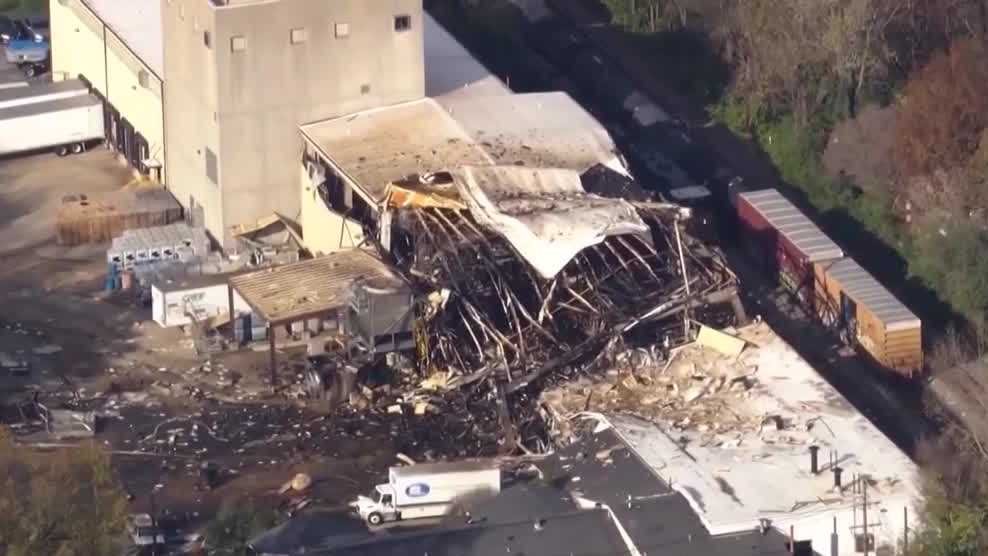Representatives for Givaudan were back in court this week. The food coloring factory exploded in the Clifton neighborhood last November, killing two people and causing damage to surrounding homes. Following the explosion, neighbors filed a lawsuit against the company, calling them negligent. The company has also held various community meetings.But it’s this communication, attorneys representing neighbors in the lawsuit argued, that was misleading. “Unbeknownst to counsel, defendant has engaged in widespread efforts to advance its own interests that we believe by communicating directly with putative class members,” said counsel representing neighbors on Thursday, Andrew Mize. Mize claimed Givaudan, formerly D.D. Williamson wasn’t providing enough information to community members, omitting details such as the existence of a class action lawsuit that community members can join, among other things. In a court filing, the legal counsel for the plaintiffs requested the judge issue a motion:”To stop Defendant’s misleading conduct that is disrupting the orderly progress of this litigation, Plaintiffs move for an order under CR 23.04(1) enforcing the Court’s interim order and requiring that Defendant must (1) submit communications with putative class members to the Court and Class Counsel in advance to ensure that any communications regarding potentially releasing claims are accurately disclosing this litigation, are not misleading, and are not attempting to intimidate absent class members into unknowingly waiving their rights; and (2) for Defendant to issue a corrective disclosure to those with whom it has already communicated about potentially releasing claims against Defendant.”The lawyer in court on Thursday representing the company, Stephanie Chmiel, argued that the community meetings provided an opportunity for residents to voice their concerns and allowed the company to be transparent with the public. “One of the things I think that was very important to D.D.W. here is understanding that the community wanted action, right?” she said. “They did not want silence from D.D.W. They did not want inaction from them. They wanted their properties repaired.”The judge ultimately denied the motion. “I don’t believe there is an attorney-client relationship with members of the putative class, to the extent that it would limit any pre-certification communication with them, by defendants,” said the judge. “I understand there is a limited relationship, but I don’t think that is sufficient to limit that communication.”The company has not held any community meetings since March. In court, Chmiel says that is because there were some threats made against D.D.W. employees. We reached back out to the company for an update on the demolition timeline of the Payne Street factory. We have not yet heard back. In our last check, they said they were in the process of getting contractor bids and would give a more detailed timeline once finalized.
LOUISVILLE, Ky. —
Representatives for Givaudan were back in court this week.
The food coloring factory exploded in the Clifton neighborhood last November, killing two people and causing damage to surrounding homes.
Following the explosion, neighbors filed a lawsuit against the company, calling them negligent.
The company has also held various community meetings.
But it’s this communication, attorneys representing neighbors in the lawsuit argued, that was misleading.
“Unbeknownst to counsel, defendant has engaged in widespread efforts to advance its own interests that we believe by communicating directly with putative class members,” said counsel representing neighbors on Thursday, Andrew Mize.
Mize claimed Givaudan, formerly D.D. Williamson wasn’t providing enough information to community members, omitting details such as the existence of a class action lawsuit that community members can join, among other things.
In a court filing, the legal counsel for the plaintiffs requested the judge issue a motion:
“To stop Defendant’s misleading conduct that is disrupting the orderly progress of this litigation, Plaintiffs move for an order under CR 23.04(1) enforcing the Court’s interim order and requiring that Defendant must (1) submit communications with putative class members to the Court and Class Counsel in advance to ensure that any communications regarding potentially releasing claims are accurately disclosing this litigation, are not misleading, and are not attempting to intimidate absent class members into unknowingly waiving their rights; and (2) for Defendant to issue a corrective disclosure to those with whom it has already communicated about potentially releasing claims against Defendant.”
The lawyer in court on Thursday representing the company, Stephanie Chmiel, argued that the community meetings provided an opportunity for residents to voice their concerns and allowed the company to be transparent with the public.
“One of the things I think that was very important to D.D.W. here is understanding that the community wanted action, right?” she said. “They did not want silence from D.D.W. They did not want inaction from them. They wanted their properties repaired.”
The judge ultimately denied the motion.
“I don’t believe there is an attorney-client relationship with members of the putative class, to the extent that it would limit any pre-certification communication with them, by defendants,” said the judge. “I understand there is a limited relationship, but I don’t think that is sufficient to limit that communication.”
The company has not held any community meetings since March.
In court, Chmiel says that is because there were some threats made against D.D.W. employees.
We reached back out to the company for an update on the demolition timeline of the Payne Street factory.
We have not yet heard back.
In our last check, they said they were in the process of getting contractor bids and would give a more detailed timeline once finalized.


